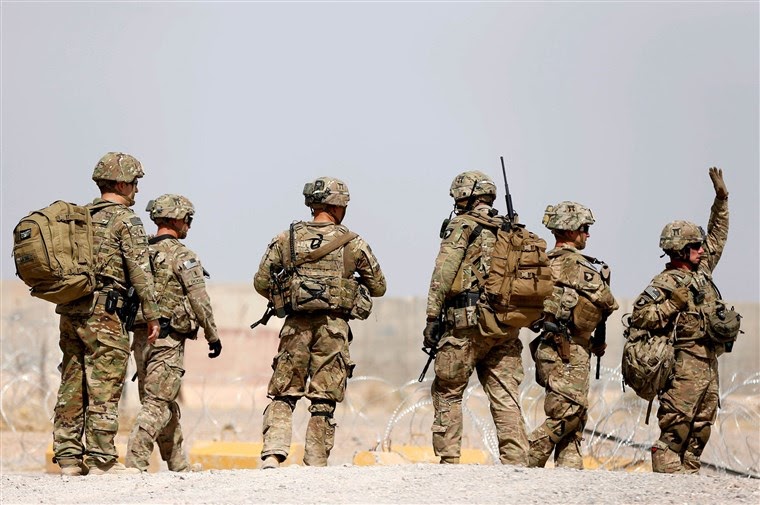Pentagon Announced US Withdrawal of Troops from Iraq and Afghanistan

U.S. troops outside Uruzgan base, Afghanistan – by Omar Sobhani
Sarah Beretich
Acting Secretary of Defense Christopher Miller announced the decision to withdraw a total of 5,000 United States troops from Afghanistan and Iraq in the coming year on November 17. This would halve the number of U.S. troops in Afghanistan and the majority in Iraq by January 15, 2021. Miller insisted that the orders, which were issued to the Pentagon’s Joint Staff and are to be carried out by U.S. Central Command, were “consistent with our established plans and strategic objectives supported by the American people” and that they do not indicate any “change in U.S. policy or objectives”.
The decision comes with the approaching 22nd anniversary of the initial global involvement in the Taliban conflict. In October of 1999, the al-Qaeda and Taliban Sanctions Committee was formed by the United Nations to impose sanctions on the terrorist groups. On September 9, 2001, al-Qaeda officers assassinated Ahmad Shah Massoud. Massoud was an Afghan guerilla commander of the Northern Alliance and a powerful figure in opposition to Taliban rule. His status as a leader against the group rendered his death a huge impact on the resistance. Two days later, al-Qaeda operatives attacked New York City and Washington, DC.
Though the war will reach its 20th year in 2021, peace talks have been brought up and called off for several years; first discussed in 2011, then canceled by the Taliban in 2012; again, they were proposed in 2019, and called off later that year by President Trump. In February of this year, the United States and Taliban signed a peace deal, which has culminated in the November decision to withdraw troops. Regarding this history of variability, President-elect Joe Biden stated, “Americans are rightly weary of our longest war,” but that it must be ended “responsibly, in a manner that ensures we both guard against threats to our homeland and never have to go back.”
In response to the announcement, Senator Mitch McConnell, a figure typically seen in alignment with Trump Administration policies and decisions, contended that “a rapid withdrawal of U.S. forces from Afghanistan now would hurt our allies and delight… the people who wish us harm.” McConnell argued that the mere visual of departing U.S. troops from their facilities “would be broadcast around the world as a symbol of U.S. defeat and humiliation and a victory for Islamic extremism.” He referenced the Obama Administration’s decision to withdraw troops from Iraq in 2011, which McConnell categorized as one that “fueled the rise of ISIS and a new round of global terrorism.”
McConnell was not alone in his concerns.
“The price for leaving too soon or in an uncoordinated way could be very high,” NATO Secretary-General Jens Stoltenberg disclosed to CNN. “Afghanistan risks becoming once again a platform for international terrorists to plan and organize attacks on our homelands.”
Despite the mixed reactions, there are some speculations that the removals in Afghanistan and Iraq could lead to the withdrawal of U.S. military forces in other locations of conflict. There are currently around 200,000 troops deployed, many in areas of conflict such as Syria and Saudi Arabia. In 2019, the United States withdrew troops from Libya, but thousands remain across the African continent, primarily in the northern half, or the Sahel. Trump has pushed for removing troops from Somalia, which comes controversially ahead of parliamentary and presidential elections.
Miller concluded the announcement by acknowledging the delicacy of the situation surrounding the decision.
“…We all will execute this repositioning in a way that protects our fighting men and women, our partners in the intelligence community, our diplomatic corps, and our superb allies,” said Miller. He stated that these parties are “critical to rebuilding Afghan and Iraqi security capabilities in civil society for lasting peace in troubled lands.”
The act is expected to carry over presidencies where, after Biden’s inauguration in January, troop removal decisions will be made under a new Commander in Chief. Whether the withdrawal of troops continues after January 20 depends on the Biden Administration’s strategy plans and what is decided for continued Taliban peace talks.







